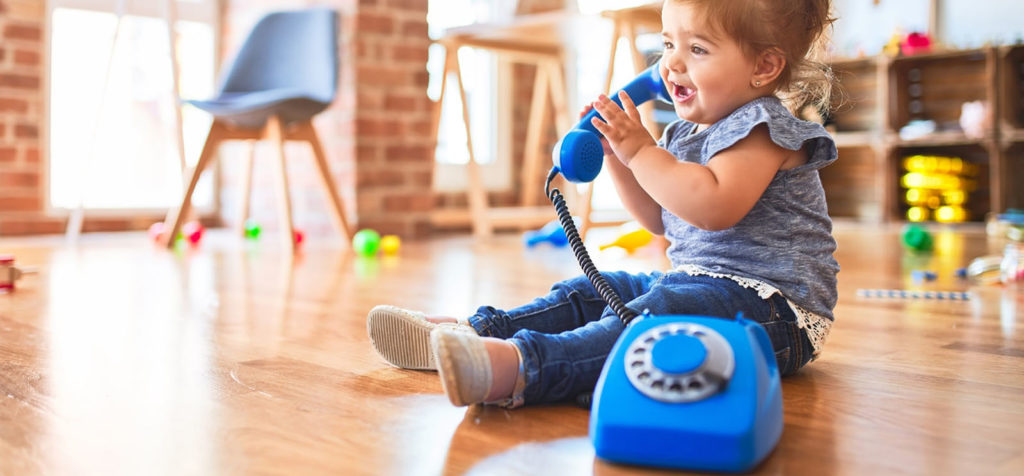1. Slow Down
Try to remember to slow the pace when you get a chance to have a conversation with your toddler. Children learn language in everyday situations. Routine activities are some of the best times to talk to your toddler because these are the moments they learn the most! Don’t forget to slow down how fast you talk too, especially if your child is struggling with speech and language development.
2. Look at Your Toddler/Child and Get Down at His/Her Level
You may be surprised by how often you say things to your child while you are turned away from each other. To help your toddler learn language and to be a better communicator, not only should you slow down, but you should also look at your child when you speak and try to kneel down to get at his or her level. This helps your child focus on you and what you have to say and lessens the surrounding distractions.
3. Wait
In today’s busy life, time is of the essence. We expect quick results everywhere we turn. Fast food, fast-forwarding commercials, express oil changes, you name it, there’s a faster way of doing it! But this isn’t how children learn language. They need our help and they need us to be patient. Make sure you allow enough time for your child to respond to you. You may not even realize but sometimes we are doing too much for them rather than waiting to see if they can do it on their own.
4. Stop Counting and Start Communicating
While teaching your child numbers, shapes, and colors is important, you don’t want to focus too much on this during their first few years. Of course don’t exclude them, but you should expose them in more natural situations. These first few years are their brains most absorbent times! So let letters and numbers slowly intertwine themselves into his or her vocabulary. We don’t want our child’s vocabulary to only be made up of these so try to communicate about everything you and your child see in his or her environment. When your child points at something, talk about it. Ask questions and wait for them to answer. Narrate what you both are doing. Talk to them, don’t just sing the ABC’s.
5. Rethink Your Toys
We’re not the only ones who have to go to work each day. Our kids go to work when they play. Play time, which is of course fun, is also a very important time for children to learn. Children learn and use language within their play, so it’s important to have good toys! Based on her experience with speech therapy for toddlers at NAPA Center, Katie suggests to get rid of a lot of the bright colored toys that light up, talk, and play music. These toys are doing all the work themselves rather than our kids doing the work. She suggests toys that allow for many open-ended play opportunities like blocks and balls. One of her favorites are play phones, which is a toy that definitely encourages language! Lastly she expresses the benefits of rotating your child’s toys. This way, it saves money and keeps your child from getting bored because it seems like a new toy every time! It also helps your child learn even more so because it gives him or her an opportunity to refresh skills that have been “put away” for a while.
Article: napacenter




